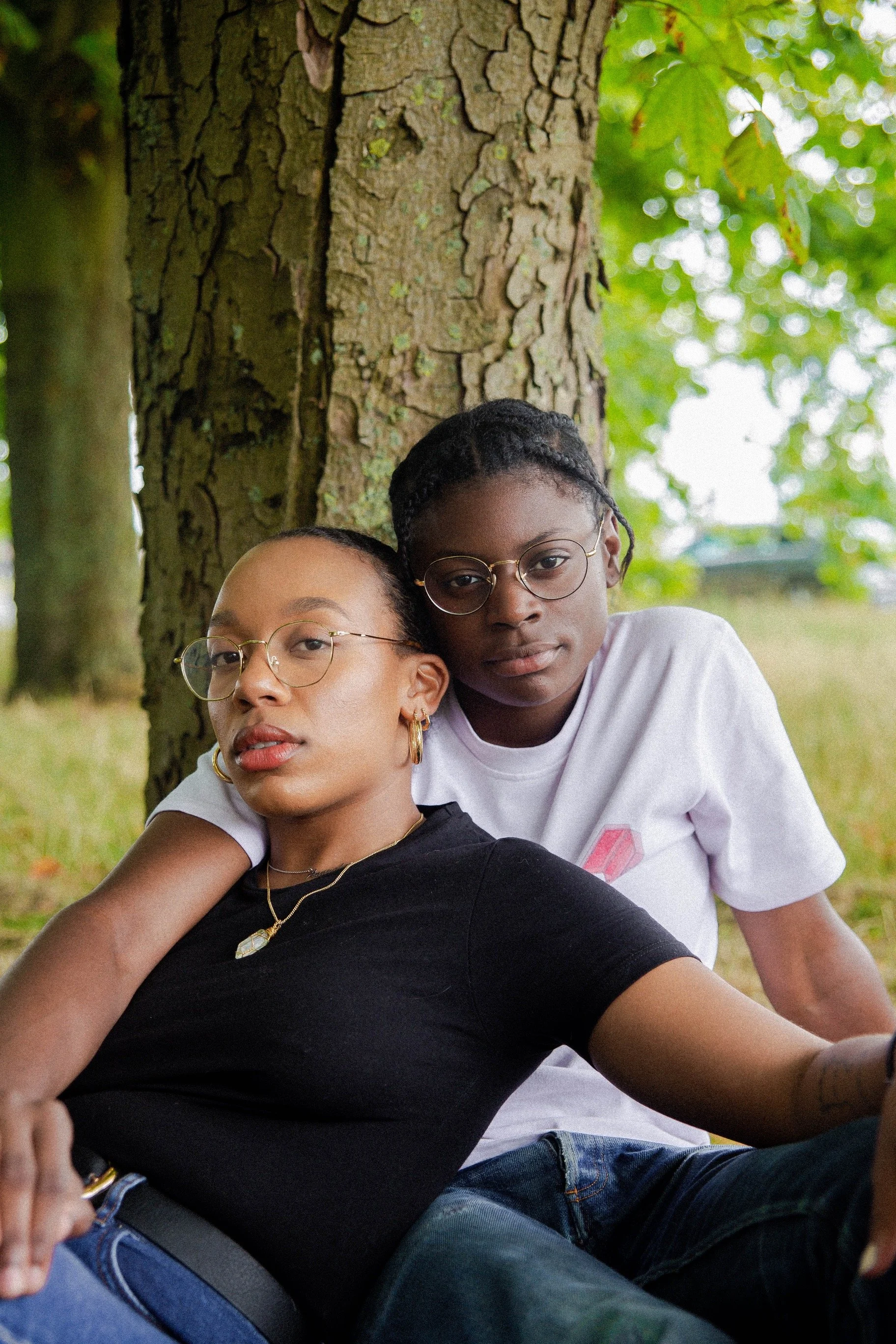Why you might suddenly go from ‘loved up’ to ‘lost’ in your romantic relationship
Have you ever been in a relationship where you are blissfully happy, everything feels right and easy and then seemingly out of nowhere it all starts to fall apart and you don’t know whether you are coming or going? Sucks doesn’t it?! Well, you’re not alone. This is a very common experience in partnership but it doesn’t have to end your relationship. I am here to help you understand how this situation can arise and what you can do about it.
Falling in Love
Think about the beginning stages of your romantic relationship (either current or a past relationship, this blog article is relevant whether you are in partnership or single). Do you remember how great it felt each time you found out you had something in common with your partner, and each step you took towards becoming a unit? Can you recall how the commonalities between the two of you invited a sense of closeness and safety? Perhaps you’re in that stage of your relationship now, if so enjoy it. It’s a gorgeous stage and a much needed one in order to build the foundational blocks of a solid relationship. Bader and Pearson (For Couples - Couples Institute) refer to this developmental stage as symbiosis. Put simply, symbiosis is when we seek a sense of home and belonging in another by focusing on the “sameness” between us. We seek out a sense of familiarity, because that breeds a sense of safety. So finding a potential partner who we have a lot in common with -whether that be hobbies and interests, or values, or background, or thinking styles or approaches to life etc- activates that part of our brain that finds safety in the familiar.
As enjoyable as the symbiotic stage of a relationship is, I’m afraid I have some bad news…it absolutely cannot last if you want your relationship to grow and develop. The reason for this is that the symbiotic stage is fuelled by all the yummy neurochemicals like dopamine, oxytocin, adrenaline and serotonin. You know the ones, the ones that make you feel giddy, energetic and euphoric. As delicious as these neurochemicals are, they aren’t helpful for our functioning in the long term. If we continued to be flooded by them, we would never get any work done because we would be too busy obsessively swooning over our partner. We would let so many important things and people in our lives slip by the wayside, because all we want to do is be near or with our partner. There is a reason why falling in love can be thought of as temporary psychosis. It’s the only time where it is socially acceptable to lose touch with reality and be swept up in a fantasy.
From an evolutionary perspective, symbiosis a.k.a. the falling in love phase, must ease and shift into something else, something deeper. Yet, so many couples struggle with this. Because, as the neurochemicals start rebalancing we start to see the flaws in our partner. But we also start to remember that we are an individual person, who is separate from our partner. That means remembering that you have your own thoughts, opinions, beliefs, wants, goals, needs, values etc. Reconnecting with this knowledge may feel like a coming home for some, but for many it feels like a threat to the couple system because reconnecting with “me” and our partner reconnecting with themselves, gets confused with taking some distance from “us”. It’s at this point that a lot of partners either split up or panic and try to hold onto the symbiosis, feeling threatened by any difference that occurs within the relationship, fearing difference to mean a weakening of the relationship. However, it is not solely the “sameness” that makes a relationship strong, it’s also largely the ability to navigate the difference.
Differentiation
As much as you may want to hold onto the symbiosis of your relationship, unfortunately the more you try to do so, the more problems will arise. The reason for this is you are trying to keep your relationship in an infantile stage of development, whilst its natural inclination is to mature. It’s like refusing to buy your growing dog a new crate and expecting them to continue fitting into their puppy crate. They just don’t fit anymore. They need their environment to support their growth.
Your relationship is no different, the environment needs to support its development and nourish its growth. This is where the second stage of relational development comes in, a stage Bader and Pearson refer to as differentiation. Differentiation, in a nutshell, is learning to tolerate, navigate and celebrate the differences between you and your partner. This is absolutely necessary if you wish to continue your growth as an individual and to deepen your relationship so that it continues to develop alongside your individual growth. Great in theory, but difficult in practice!
There are two types of differentiation: We have 1) differentiation of self which is where you learn to speak your truth, to own your separateness and communicate your needs, wants and opinions without collapsing in on yourself and merging back with your partner; and 2) other differentiation, where you learn to support your partner’s expression of their difference rather than try to force them to merge with you.
Supporting Differentiation
In order to ease the discomfort that comes from your relationship maturing past symbiosis, I have a number of tips:
Name it!!
Make it explicit that you have an awareness that the relationship is shifting and share your feelings about this with your partner e.g. ‘I have noticed that things are feeling a bit different compared to when we first got together. Whilst I know this is normal, I feel a little unsettled by it. Can we chat about it?’
Explore and nurture the growth of your similarities
Try making a list of all the things you have in common, talking through what each of you like about having those things in common and how you can build on the strength of these similarities.
Prioritise quality time where you engage in joint interests, being mindful that effort is required to make your relationship a priority when life is busy.
Explore and nurture the growth of your differences
Each of you, try making a list of what you admire in your partner that is different from yourself and verbalise to them why you admire that.
Ask your partner how you can support them to nourish this quality/ activity/ skill.
Make requests to your partner of how they can support you to nourish your individual pursuits.
Keep getting to know each other
Making an assumption that you know your partner really well and there is nothing more to learn is a one way road to relational complacency. Instead, try to come from a position of curiosity where you ask each other open questions.
Using your differences as a topic, you could ask your partner to explain why a certain activity or pursuit is important to them, how it makes them feel about themselves and their life and what part of them it helps nourish.
Explore how to communicate from a place of safety
An internal sense of safety is a very subjective thing. What makes you feel safe in your attachments may be different to your partner. Making assumptions that it is the same will lead to crossed wires. Instead, try exploring with and communicating to your partner what makes each of you feel safe in the relationship, especially in times of disagreement. This may include making agreements along the lines of the following:
We don’t yell at each other or name call.
If one of us needs a timeout we agree that is happened and a time we will come back together to continue the communication. This is opposed to one partner leaving the environment without prior warning or reassurance that they will return. For a partner with an abandonment and/or rejection would, this would be very distressing.
We don’t talk over each other, we give each other the space to finish what they are saying before cutting in, making sure to respond to what our partner says, not what we think “they really mean”. If we have confusion over what they are saying, we ask for clarity.
The above are a tiny sample of how taking a closer look at your relationship could help support the growth of it. If you would be interested in learning more, deepening your relationship or navigating specific difficulties in your relationship, get in touch with us at The Bodart Practice to explore Couples Therapy.
Written by: Dr Christina Johnson, counselling psychologist and couples therapist at The Bodart Practice.
Resources:
Couples Institute For Couples - Couples Institute
Esther Perel, Where Should We Begin podcast for couples Podcasts | Esther Perel





